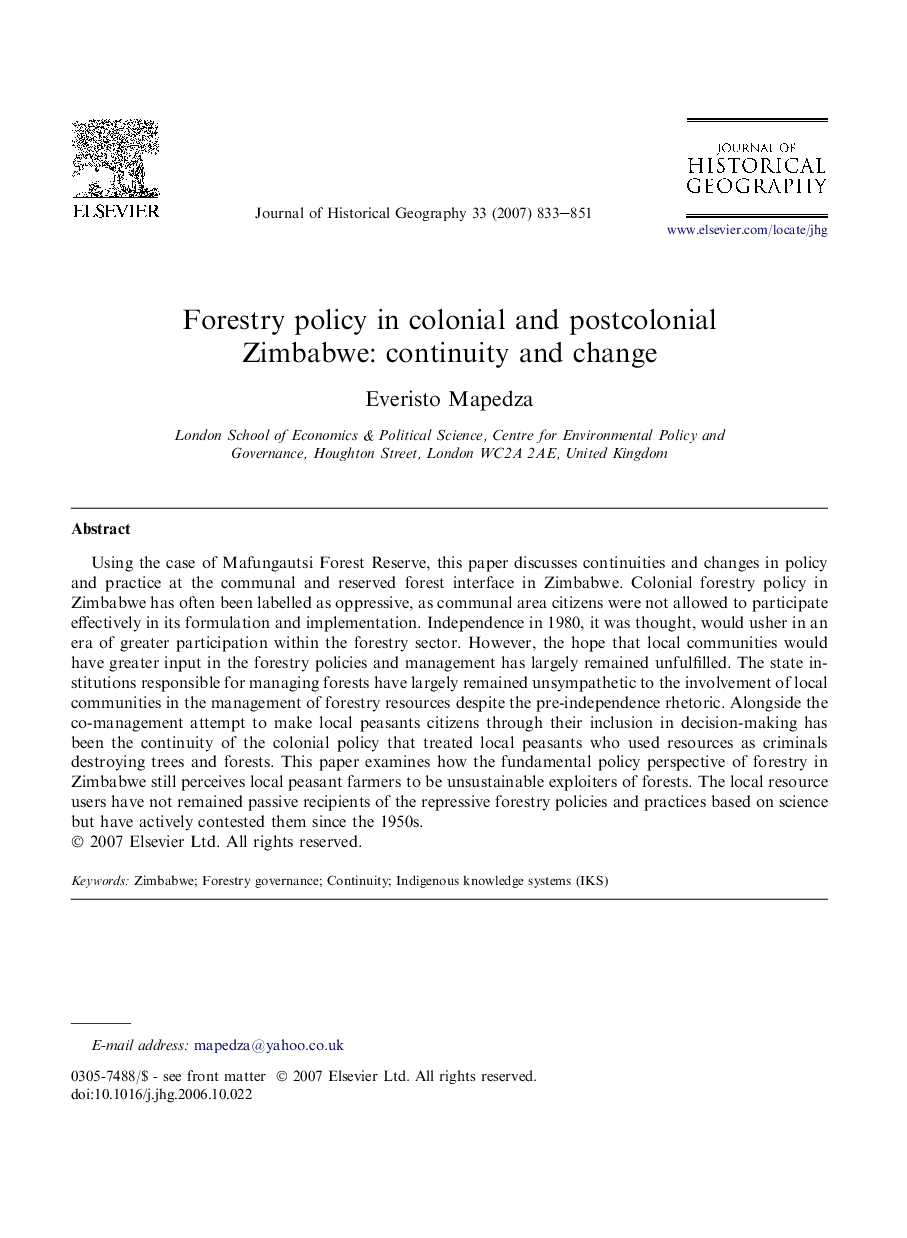| کد مقاله | کد نشریه | سال انتشار | مقاله انگلیسی | نسخه تمام متن |
|---|---|---|---|---|
| 1039357 | 944296 | 2007 | 19 صفحه PDF | دانلود رایگان |

Using the case of Mafungautsi Forest Reserve, this paper discusses continuities and changes in policy and practice at the communal and reserved forest interface in Zimbabwe. Colonial forestry policy in Zimbabwe has often been labelled as oppressive, as communal area citizens were not allowed to participate effectively in its formulation and implementation. Independence in 1980, it was thought, would usher in an era of greater participation within the forestry sector. However, the hope that local communities would have greater input in the forestry policies and management has largely remained unfulfilled. The state institutions responsible for managing forests have largely remained unsympathetic to the involvement of local communities in the management of forestry resources despite the pre-independence rhetoric. Alongside the co-management attempt to make local peasants citizens through their inclusion in decision-making has been the continuity of the colonial policy that treated local peasants who used resources as criminals destroying trees and forests. This paper examines how the fundamental policy perspective of forestry in Zimbabwe still perceives local peasant farmers to be unsustainable exploiters of forests. The local resource users have not remained passive recipients of the repressive forestry policies and practices based on science but have actively contested them since the 1950s.
Journal: Journal of Historical Geography - Volume 33, Issue 4, October 2007, Pages 833–851